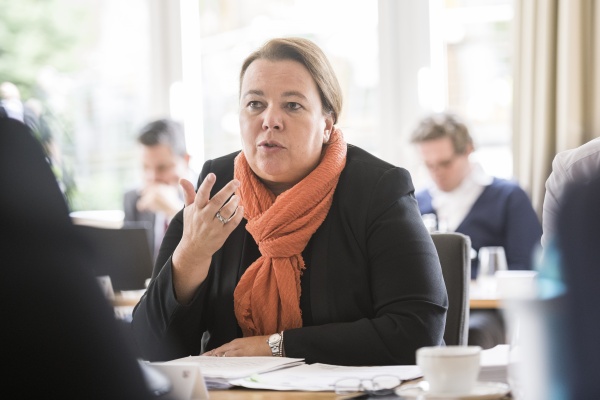Fair city sharing - what can urban planning contribute?
Our cities have grown over centuries. This also reflects the history of urban society, i.e. who was in charge, which professions were accessible to whom. A city is a multi-layered structure:...


YOUR FORUM FOR PLAY, SPORTS UND LEISURE AREAS

Playground@Landscape: What does "Education for Sustainable Development" mean?
Ursula Heinen-Esser: Education for sustainable development - or ESD for short - should enable children, young people and adults to act responsibly. Especially in the course of the great challenges of our time, it is important that people are able to correctly classify and assess ecological, economic and social developments. Education is a key factor for a generation-oriented and sustainable life. Thus we provide a variety of offers and initiatives, such as our 25 ESD regional centres in the federal land of North Rhine-Westphalia (NRW). As extracurricular places of learning, they complement the educational processes of children and young people with their participatory, experiential and action-oriented offers. In addition, I find it very important to ask young people what they need and to include their ideas and needs in policy-making. At this year's NRW ESD Festival, we therefore discussed with young people from different educational sectors about their wishes and ideas for the future. With the continuation of the NRW state strategy, we will also continue to expand and develop ESD in all areas of education in the coming years.
P@L: How do you think climate change will affect our public life in the future?
Ursula Heinen-Esser: Climate change is the greatest ecological and also economic threat of our time. The first massive consequences have long since been felt here: weather extremes are increasing, there is too little precipitation over longer periods, then too much in the form of heavy rain. We must do our utmost to keep climate change to a minimum. At the same time, we must prepare ourselves as good as we can for the irreversible changes, take the necessary adaptation measures and actively protect ourselves. To this end, NRW was the first federal land to initiate an independent climate adaptation law. The law requires that climate adaptation be taken into account in decision-making. This involves very concrete questions: How do municipalities deal with heat, where do they create cooling by applying which initiatives? However, the expansion of green infrastructure and adapted water management are crucial. Climate adaptation is a precautionary measure for our existence and the future.
P@L: The role of public space is becoming increasingly important: How must public open spaces be planned in the future to meet the challenges of climate and environmental protection?
Ursula Heinen-Esser: Public open spaces provide people with recreational and leisure opportunities and increase our quality of life. We therefore support the expansion of green and blue infrastructure with numerous initiatives and funding offers, such as the REACT-EU development programme, which has just been launched: funding is provided, among other things, for the unsealing of areas for ecological upgrading, the creation of near-natural water areas and larger flowering areas, but also for the planting of trees. Thus habitats for biodiversity are created which improves the quality of life of our citizens. 20 million euros are available for this project just from EU funds. In the next ten years to come, the federal land of North Rhine-Westphalia and the water associations will also invest around 250 million euros in numerous initiatives that contribute to a climate-proof future.
P@L: What do you think about the "European Green Deal"? Will our industry be able to cope with the relevant challenges?
Ursula Heinen-Esser: Sustainable transformation can only succeed on a common basis. We must now set the course to emerge from the crisis in a more climate-friendly, resource-efficient and sustainable way. The "European Green Deal" defines a new value perspective on the basis of which all political decisions must be made against the background of the finite nature of our resources and natural habitats. As a result, it is necessary to conserve resources and act in a sustainable manner. This also applies to industry, which we want to encourage with a special programme which is based on investments in advanced production or recycling technologies. Since the beginning of the year, the federal land of NRW has made up to ten million euros available for the expansion of the circular economy and for increasing resource efficiency in manufacturing companies. Sustainable management creates competitive advantages and jobs.
P@L: How can politics help to make public planning and construction measures more climate and environment-friendly? How sustainable do you find today's planning, construction and maintenance of play, sports and leisure facilities?
Ursula Heinen-Esser: In the heavily sealed inner cities, green spaces effectively protect residents from noise, bind particulate matter and serve climate protection. With our green roof initiative, we support our citizens economically and through individual advisory services. Owners, architects and urban planners can use an online green roof register to assess whether the relevant roofs are suitable for greening. At the same time, we support the information campaign "More Green on the House" of the NRW consumer advice centre on the greening of private properties and buildings. With another funding programme, the so-called "Climate resilience in municipalities", we support municipalities in developing climate-adapted public spaces. The initiatives aim, among other things, at mitigating heat islands in highly dense areas of our cities in order to increase the quality of stay.
P@L: The Ministry of the Environment has launched numerous competitions to promote environmental innovations. What is actually behind them?
Ursula Heinen-Esser: The Covid-19 pandemic has shown how important crisis-proof business models are. Through targeted funding competitions such as the "Innovation Environmental Economy NRW “- call or the "Special Environmental Economy Programme", we are setting the course for a more environment-friendly economy along with the creation of attractive and competitive jobs for sustainable economic growth. Overall, I am impressed by the creativity and professionalism with which the players in the environmental economy in NRW are tackling these key issues for the future. The ideas range from regional networks for the development of a hydrogen infrastructure, to the production of environment-friendly leaf fertilisers, to a tasty and vitamin-rich meat substitute produced without animal additives from regional waste materials.
P@L: Fresh fruit, vegetables and dairy products - several times a week and from the school year 2021/2022 onwards even completely free of charge: With the participation in the EU School Programme 2021/2022, the state government promotes healthy breakfast and lunch catering in day-care centres and schools.
But what about the playful inclusion of physical activity in addition to healthy nutrition in everyday life? When will exercise at school be equated to nutrition - and also promoted by you?
Ursula Heinen-Esser: Both a balanced diet and sufficient exercise are fundamental to a healthy lifestyle. Against this background, we support the national action plan of the Federal Government "IN FORM - Germany's initiative for healthy nutrition and more exercise". The aim is to improve sustainable nutrition and physical activity behaviour in Germany. It is in the first years of life when children develop the basic motor skills that are fundamental for their physical and mental development. Children who move a lot also get used to a physically active lifestyle at an early age, which they thus continue in adulthood and from which they benefit in their later years. Therefore, in addition to healthy nutrition, it is important to promote exercise from the very beginning as an important component of holistic personality development.
P@L: Will playgrounds and sports facilities have to be roofed over in the future due to increasing solar radiation? Will we still be able to play and do sports outdoors at all in the future?
Ursula Heinen-Esser: Playgrounds and sports facilities should continue to be designed as open and natural as possible. Green open areas both serve the exchange of air and as a thermal compensation area. A roofed design would be a contradiction and cause even more heat accumulation. Another climate and health-related issue is ozone. At ozone levels above the information threshold, people who have shown to be particularly sensitive to ozone are advised to avoid outdoor exertion as a precaution. Sporting endurance activities should be postponed to the early morning or evening hours. Those who spend time outdoors should also remember to protect themselves against sunburn. Burning the skin is not only painful, it also increases the risk of developing skin cancer. However, sunburn is particularly dangerous for the sensitive skin of children.
The interview was held by Thomas R. Müller (Playground@Landscape)